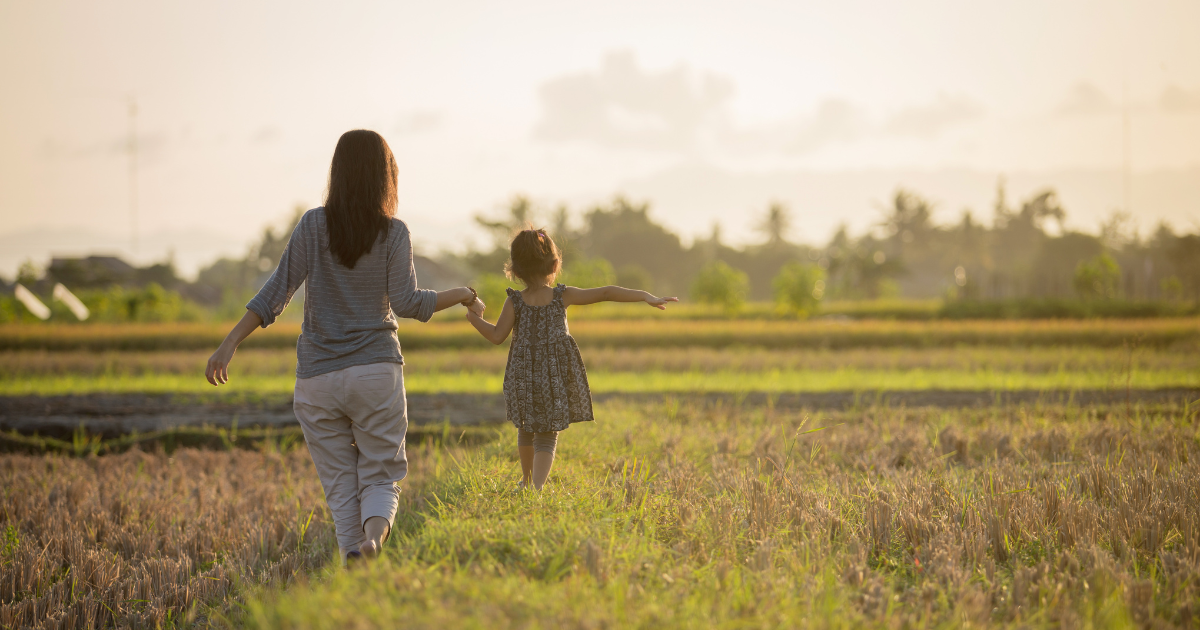
Inspired to Live Simply
Rachael Lopez, participated in Archbishop Justin Welby’s Community of St Anselm and currently serves as Operations Officer at AOA, she shares her insights about embracing a simpler life.
When I began working at Anglican Overseas Aid, my desire for simplicity was reawakened as I saw the incredible need of our partners worldwide and the faithfulness and generosity of our supporters.
Strangely, the last time I embraced a simple lifestyle, I lived in a palace. Nine years ago, my husband Jonathan and I moved from Melbourne’s western suburbs to Lambeth Palace in London, UK, the home of the Archbishop of Canterbury. We were in the first cohort of Archbishop Justin Welby’s Community of St Anselm, a new monastic, international and ecumenical community of young adults. We lived in the old cottages where staff used to reside, and my husband and I had one room and an ensuite for a year. We lived by a rhythm of morning prayer, eucharist, and evening prayer. We cooked in pairs on a rota, served with charities two days a week, and had £50 spending money each month (spent mostly on the coffee van metres from the Palace, opposite Big Ben).
Since returning from London, life has been anything but simple. With job changes, house moves and a child, the steady accumulation of things, time commitments and media consumption has meant my initial vision of simplicity has faded into the background of daily life.
I was first introduced to the idea of simplicity as a Christian imperative by reading Living More Simply, edited by Ronald J. Sider, who noted one of the most discussed elements of the 1974 Lausanne Statement:
‘All of us are shocked by the poverty of millions and disturbed by the injustices which cause it. Those of us who live in affluent circumstances accept our duty to develop a simple lifestyle in order to contribute generously to both relief and evangelism.’
To mark the 50-year milestone of this statement, I decided to read a different book on simplicity each month to ensure I live a generous life. Here are some things I am learning:
A simple lifestyle connects us more with our global neighbours.
During this year in London, we visited a range of religious communities, including Franciscan, Benedictine, Ignatian, and Celtic. There are two descriptions of religious life to which I am drawn. One is the idea of monasticism being like a feature cartoon, exaggerating different aspects of following Jesus in order to draw attention to it. The other idea is that some people are called to leave everything for Christ as a prophetic sign that all should make him the centre and priority of their lives. Among these experiences, the Franciscan commitment to voluntary poverty stood out. This choice to live in solidarity with the poor resonates deeply, prompting me to consider my own lifestyle. Living comfortably in the suburbs, I feel a strong urge to reassess how my excess might be affecting my connection with those for whom living simply isn’t a choice. Inspired by the Franciscans’ example, I am motivated to reflect on how I can live more intentionally and in closer solidarity with my global neighbours.
A simple lifestyle means a smaller environmental footprint.
It would be normal for a minister to encourage their congregation to be less materialistic. However, there is an interesting paradox. In Living More Simply, a couple who had chosen a simple lifestyle found that, in one sense, they had become more ‘materialistic’. They wrote, ‘In a sense, we have become more “materialistic.” That is, we care more about how we use the “materials” of our lives. We want to “have dominion over created things” rather than abusing them or letting them control us.’ To have a smaller footprint on the environment, we need to consume less and be more discerning about what we consume. Connected to this is treasuring God’s creation and enjoying the simple things in life that cost very little.
A simple lifestyle is a daily challenge to live counterculturally.
1 Thessalonians 4:11 encourages us to strive earnestly to lead a quiet life, to mind our own business, and to work with our hands. You may wonder why you would have to ‘strive earnestly’ to live quietly. I believe that’s because it’s countercultural. The default is to live busily in consumerism and distraction. Living differently requires daily action, not just a mindset shift. One book I read quoted Franciscan priest Richard Rohr who said: ‘We don’t think ourselves into a new way of living; we live ourselves into a new way of thinking.’ The path of simplicity means a thousand small ‘Nos’ in order to say ‘Yes’ to what is truly important.
A simple lifestyle gives us a greater capacity to be more generous.
Mahatma Gandhi famously said, ‘Live simply so that others may simply live’. Part of my role at Anglican Overseas Aid is processing donations. I see the sacrificial giving akin to the ‘widow's mite’ despite Australia’s rising cost of living. People steadfastly contribute $50 a month over 30 years, totalling $30,000, and families faithfully support our appeals yearly. I also witness the cumulative effects of lives of stewardship and generosity, culminating in significant bequests. This has been a profound witness to me, as I desire to live a simple lifestyle so I can be more generous. This has inspired me more than any book I have read.
We would love to hear from you, our supporters. Please email aoa@anglicanoverseasaid.org.au or write to our postal address and share your thoughts on the values of simplicity and generosity.





